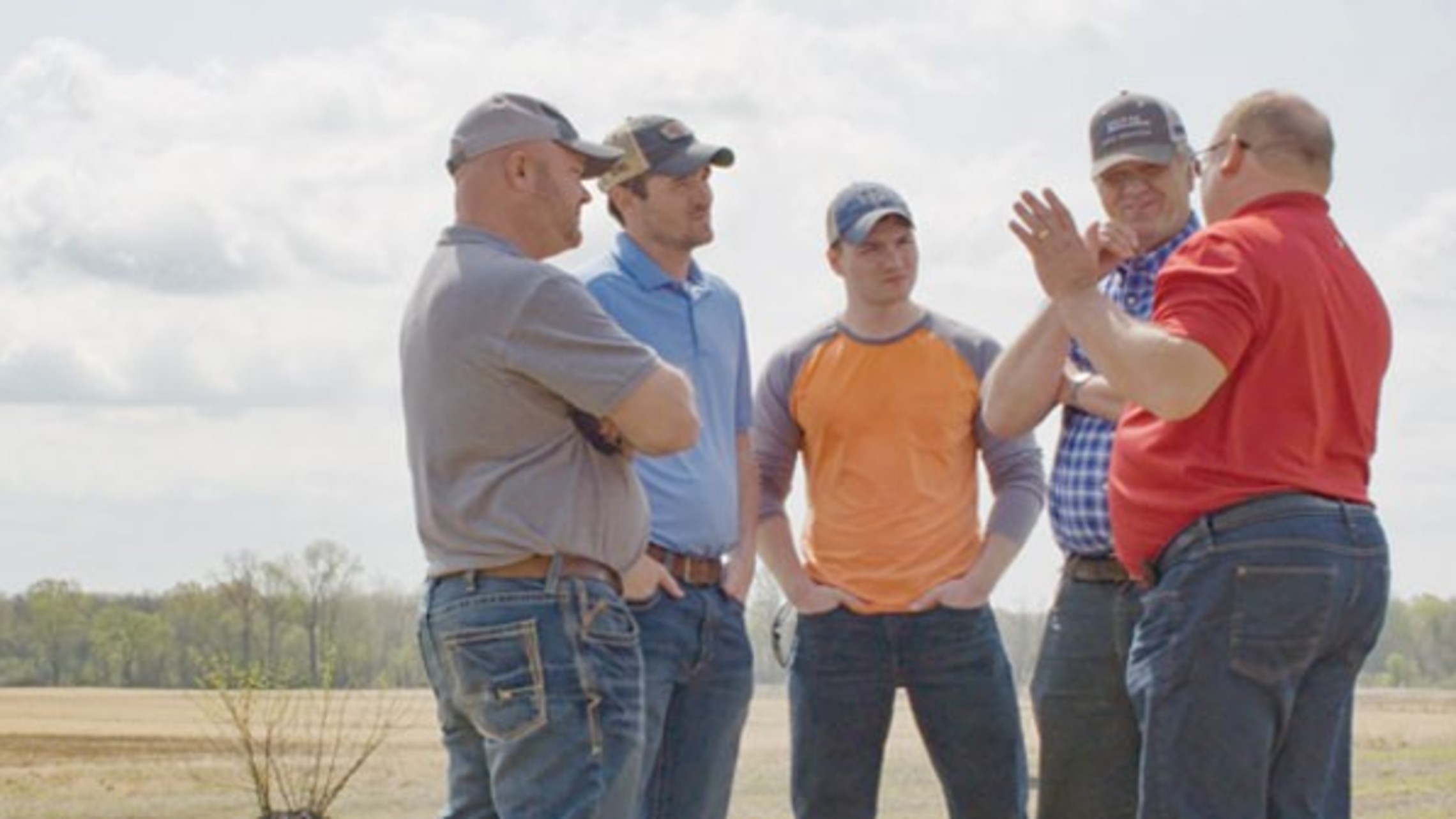Tennessee farm family strives to leave a lasting impression
Ninth-generation corn and soybean farmers do their best to tackle life’s challenges

In agriculture, we hear the phrase “family farm” or “multi-generational farming” or “third- generation operation” a lot. Some may even argue that the phrase is starting to become commonplace.
However, when meeting the Grills, a family who runs a multi-generational farm, they are anything but common. At the northwestern corner of Tennessee, at the crossroads of Missouri, Arkansas and Kentucky, sits the Grills’ 3,000-acre family farm in Newbern, where they grow corn and soybeans. Along with their father, Jack, Rusty and Hunter Grills run the operation with their brother Cody.
Scott Kay, BASF Vice President for U.S. Crop Protection, had a chance to sit down with the family to learn more about managing and maintain this family business.
“It's very rewarding to go out and put my hands in the dirt, plant a crop, invest in that crop, nurture it, watch it grow, and then reap the benefits from it,” said Hunter.
Just like a first-generation grower who is learning the story of their land for the first time, the Grills’ operation is no different. While they’ve been on the land for over 100 years, they’re still learning how to overcome obstacles as they face them. One main issue has been resistant weeds.
“Our problem weed is pigweed. In this area here, it's just — It's unreal, the pressure,” said Rusty. “It's more than just a problem. It's a threat, and we fight it, and we continue to fight it, and you know, you got a product or two that we use that really helps in that battle.”
The Grills are not alone in their battle against resistant weeds in this part of the country. With the number growing each year, farmers continue to look for economical ways to manage troublesome weeds while protecting their bottom lines.
“It was unreal the amount of money we were spending on pre’s trying to keep our crops clean, and you know, it would work, but there comes a point when you have to stop spending money or you will be unprofitable,” Rusty said. “And if you're unprofitable, you're out of business before long, so Engenia's definitely a tool in the toolbox that we have. It's not necessarily the tool that we want to use every year, but we definitely want to be able to use it if we need it.”
Dicamba technology entered the market in 2017, with growers across the country adding this tool to their arsenal. What many learned after its inaugural season was the importance of following stewardship best practices, including talking with their neighbors.
“What made it successful on our farm, I believe, [was] that we talked to our neighbors before we applied it,” said Rusty. “You know, when we were planting our soybeans, I'd call a neighbor and say, ‘I'm over here. I'm planting this beside your cotton. I want to make sure that you know what kind of beans we're planting. What kind of cotton do you have?’”
Many growers have different experiences using new technology like dicamba. To learn more about the Grills’ experience with dicamba and their vision for the 10th generation on their farm, click here.
